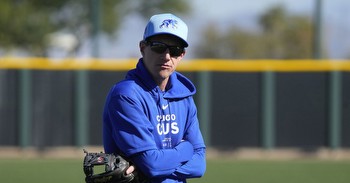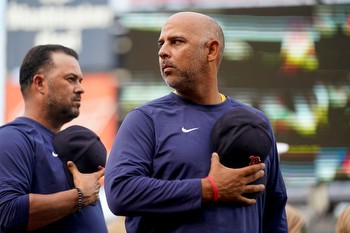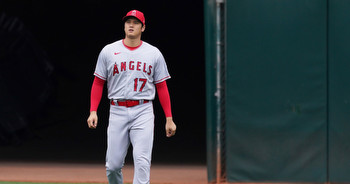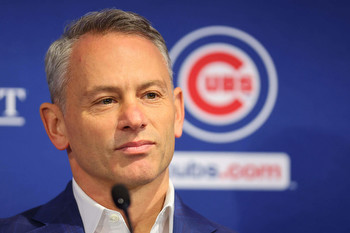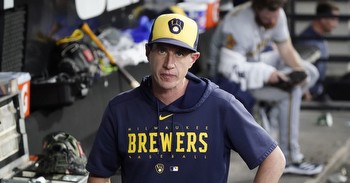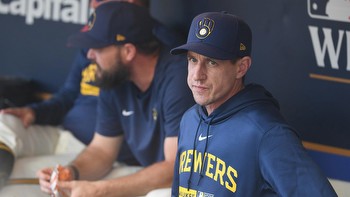Wailing over Craig Counsell deal is silly

CHICAGO — When Ryne Sandberg signed a then-record four-year, $28.4 million contract extension with the Chicago Cubs during spring training in 1992, baseball executives were apoplectic.
Sandberg’s average annual salary of $7.1 million far exceeded the $5.8 million average New York Mets slugger Bobby Bonilla received only a few months earlier.
What were the Cubs thinking?
Minnesota Twins general manager Andy MacPhail was among those livid over the toppling of baseball’s salary structure.
“My 3-year-old son could have made that deal (with Sandberg),” MacPhail said. “To jump from 5.8 (million) to 7.1! That was absolutely stupid a year ahead of free agency. That’s stupidity and timidity.
“Sandberg sets an artificial deadline and gets away with it! It’s a terrible deal. We’re going to spend ourselves into oblivion. I don’t blame the players. It’s the owners’ fault. We keep giving it to them.”
Two years later, MacPhail left his job with the Twins with two years remaining on his deal to become president of the Cubs. He didn’t seem to mind the Cubs owner, Tribune Co., inflating his worth for a better job.
MacPhail’s journey from finger-wagging executive of a small-market team to “take-the-money-and-run” executive for a big-market team comes to mind after hearing baseball people wailing over Craig Counsell’s shocking five-year, $40 million deal to leave the Milwaukee Brewers and manage the Cubs.
The Athletic quoted one unnamed former manager who called the Cubs’ decision to fire a manager under contract, David Ross, for a higher-priced replacement as the “managerial Hunger Games,” referring to the dystopian novel about a battle of survival. The irony is The Athletic began by poaching reporters from newspapers and websites with much higher salaries, a sort of “journalistic Hunger Games.”
Anyway, the report concluded that baseball people were “conflicted” by the move. It quoted another anonymous former manager as saying “it just felt wrong” and spelled the end of the “brotherhood” of managing, as if the 30 major-league managers were all in this together.
I’m not sure what planet any of these anonymous baseball people are living on, but there was absolutely nothing wrong with Cubs President Jed Hoyer electing to hire what Counsell, who most believe is one of the top managers in the game, to replace Ross, who had a year remaining on his contact and oversaw an epic September collapse to lose a wild-card spot.
Either they weren’t paying attention to the Cubs downfall or they’re jealous that someone set a new market for managerial pay.
Few managers play out their contracts and elect for free agency, preferring the security of an extension. That includes Ross, who signed a three-year extension before the 2022 season with an option for 2025.
Counsell decided to bet on himself, knowing if the Brewers missed the postseason for a second consecutive year it could backfire. He won.
The idea that Counsell should’ve deferred to Ross’ status and told the Cubs he wasn’t interested in a job that was already filled is also backward thinking. He owed Ross nothing.
Baseball people like to tell us they’re all part of a family — until it comes down to money. Then it’s like any other business. Players profess they love a city and its fans, then opt out in hopes of a bigger deal, as former Cubs pitcher Marcus Stroman just did.
It’s all part of the game. If someone offered you a prestigious job for more money, would you reject it out of hand because you’d be taking someone’s position?
The reaction in Wisconsin to Counsell’s departure also has been disturbing. Someone defaced a sign on a baseball field named after Counsell, and Brewers owner Mark Attanasio, who threatened to move last summer if funding for stadium improvements wasn’t forthcoming, whined that “Craig has lost us, and he’s lost our community also.”
Such nonsense. Counsell told the Milwaukee Journal Sentinel he would remain part of the community where he grew up and continues to live.
“And that’s going to continue, hopefully, because it has nothing to do with baseball, that part of it,” he said. “I’m looking forward to being part of a new community and hopefully impact our community well too. But as I went through (the decision), it just became clear that I needed a new challenge.”
The proximity of Chicago was also important to Counsell for family reasons. He was going to be paid wherever he landed, so you have to think being close to home was almost as important as the record contract. He still has cheese in his DNA.
As for Hoyer, he deserves credit for making a difficult decision that he thought was in the best interest of the organization, as he did during the massive summer sell-off in 2021. Javier Báez, Kris Bryant and Anthony Rizzo will always be beloved in Chicago, but few fans wish they were still here.
It was also nice to hear Hoyer concede “we left wins on the table.” Though Ross deserved credit for the team’s revival after being 10 games under .500 in June, he also deserved some of the blame for the collapse. How much of it was Ross’ fault is debatable, but it’s hard to argue that his team didn’t look defeated during the final road trip to Atlanta and Milwaukee that sealed its fate.
Whether this decision turns out well for Hoyer and Counsell is anyone’s guess. The Cubs still need talent upgrades after an 83-win season and could lose their best hitter in Cody Bellinger. Counsell will be reminded before his next postseason game that he never has managed a team to the World Series
But it signaled a new era for the Cubs — a chance for Hoyer to separate himself from Theo Epstein’s long shadow in Chicago and for Counsell to live up to his reputation as one of the best in the game.
If this really is the Hunger Games, we can’t wait for them to begin.


